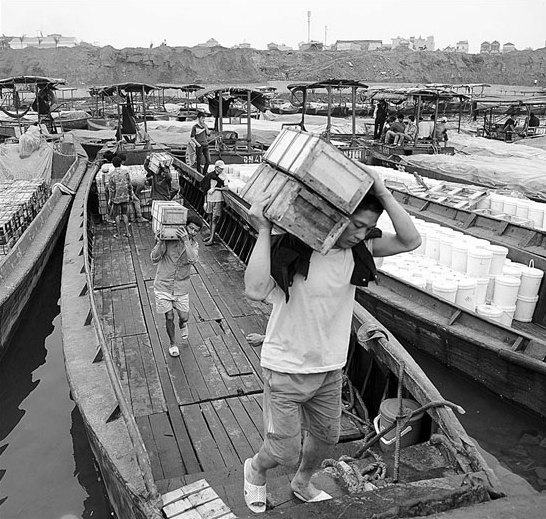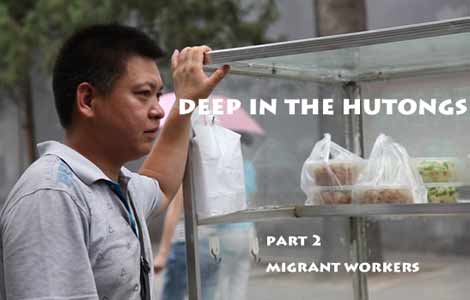Nation should be more active in RCEP talks
Updated: 2013-10-11 07:47
By Li Jiabao (China Daily)
|
||||||||
China should play a more active and open role in advancing the Regional Comprehensive Economic Partnership, or RCEP, to fasten the pace of the pact, while the United States is actively pushing forward the Trans-Pacific Partnership in the region, experts said.
"China may not be the leader in advancing the RCEP progress, but should play a more active role, especially in setting the issues, and present a more open stance so as to speed up the talks," said Shen Minghui, a researcher at the Chinese Academy of Social Sciences' Institute of Asia-Pacific Studies.
Zhang Jianping, a researcher from the Institute for International Economic Research of the National Development and Reform Commission, agreed and said that China should support the leading role of the Association of Southeast Asian Nations.
"The leading role of the ASEAN helps to hold economies, including Japan, Australia and India, together in the RCEP talks. But China should be more constructive in advancing the talks," Zhang added.
|
Traders in Dongxing, Guangxi Zhuang autonomous region, carry goods from Vietnam, one of the members of the Association of Southeast Asian Nations and a member of the China-ASEAN free trade agreement. Provided to China Daily |
The negotiations for establishing the RCEP were initiated in November 2012 and included 16 economies - the 10-member ASEAN and China, Japan, South Korea, India, Australia and New Zealand. The first round of talks was concluded in early May and the second round was finished in late September in Australia. The third round of negotiations will be held in January 2014 in Malaysia.
The negotiations are expected to be concluded by 2015, and once established, the partnership will be one of the world's largest free trade areas, and it will create an integrated market of over 3 billion people with a combined GDP of over $20 trillion.
"East Asia needs the RCEP to expand regional demand and sustain growth. China should also seize the great opportunities presented by the partnership as the country enlarges domestic demand and optimizes its foreign trade," Shen said.
Zhang added that China should "strategically emphasize the RCEP, which will be a parallel driver, along with the US-led TPP, in advancing the regional economic integration.
"But China should not be eager to join the TPP talks and should try its best to advance the RCEP," Zhang added.
China's Commerce Ministry spokesman Yao Jian recently said that the country currently prioritizes the ongoing free trade agreements, including the China-Japan-South Korea FTA and the China-South Korea FTA, while some standards in the TPP talks are too high for China to join in.
The US-led TPP agreement, which also includes Australia, Brunei, Canada, Chile, Japan, Malaysia, Mexico, New Zealand, Peru, Singapore, and Vietnam, is the foundation of the Obama administration's economic policy in the Asia-Pacific region. Negotiators expect to conclude the talks by the end of the year.
"The fast progress of the TPP brings challenges for China to upgrade the regional agreement with the ASEAN and open up more sectors to forge a partnership comparable to the US-led one," said Song Hong, an economist at the Institute of World Economics and Politics of the Chinese Academy of Social Sciences.
Zhang Jianping, the researcher from the National Development and Reform Commission, added that "China may be more open and flexible in the RCEP talks on goods trade" in view of the country's well developed manufacturing sector.
"But China is challenged in service sectors as well as in foreign investment management and reforms should be speeded up to meet the standards in the RCEP talks," Zhang added.
lijiabao@chinadaily.com.cn
(China Daily 10/11/2013 page16)
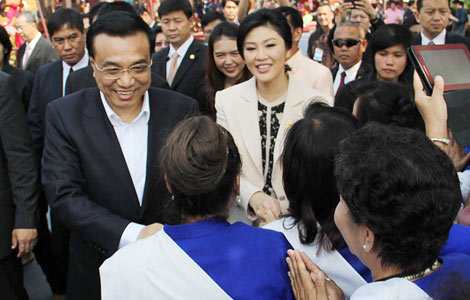
 Chinese education for Thai students
Chinese education for Thai students
 Djokovic retains Shanghai Masters title
Djokovic retains Shanghai Masters title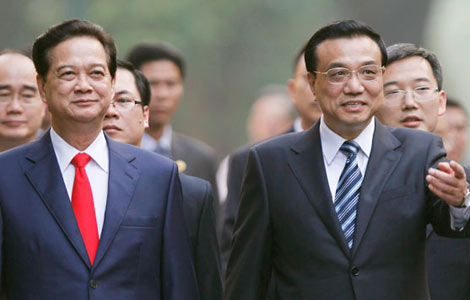
 Working group to discuss sea issues
Working group to discuss sea issues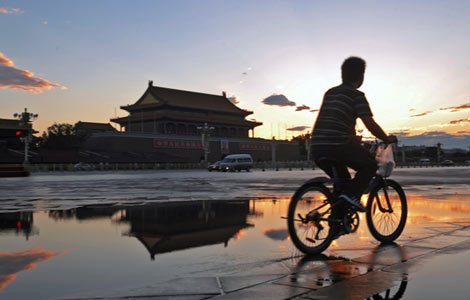
 Draft regulation raises fines for polluters
Draft regulation raises fines for polluters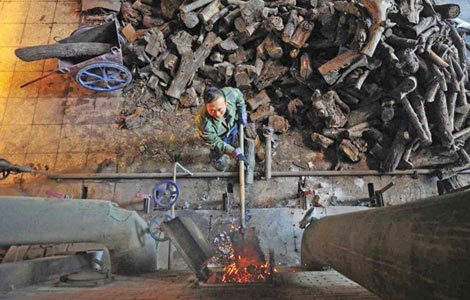
 Other measures for the capital to become green
Other measures for the capital to become green
 Colombian takes wingsuit crown
Colombian takes wingsuit crown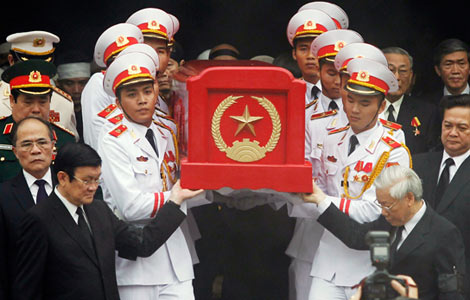
 Vietnam buries heroic general
Vietnam buries heroic general
 Road to clean air starts with new energy vehicles
Road to clean air starts with new energy vehicles
Most Viewed
Editor's Picks

|

|

|

|

|

|
Today's Top News
No new findings over Arafat's death: official
Chinese firm joins UK airport enterprise
Senate leader 'confident' fiscal crisis can be averted
Working group to discuss sea issues
Man hospitalized years after amputating own leg
Detained US citizen dies in Egypt
Senate leads hunt for shutdown and debt deal
Draft rule raises fines for polluters
US Weekly

|

|
